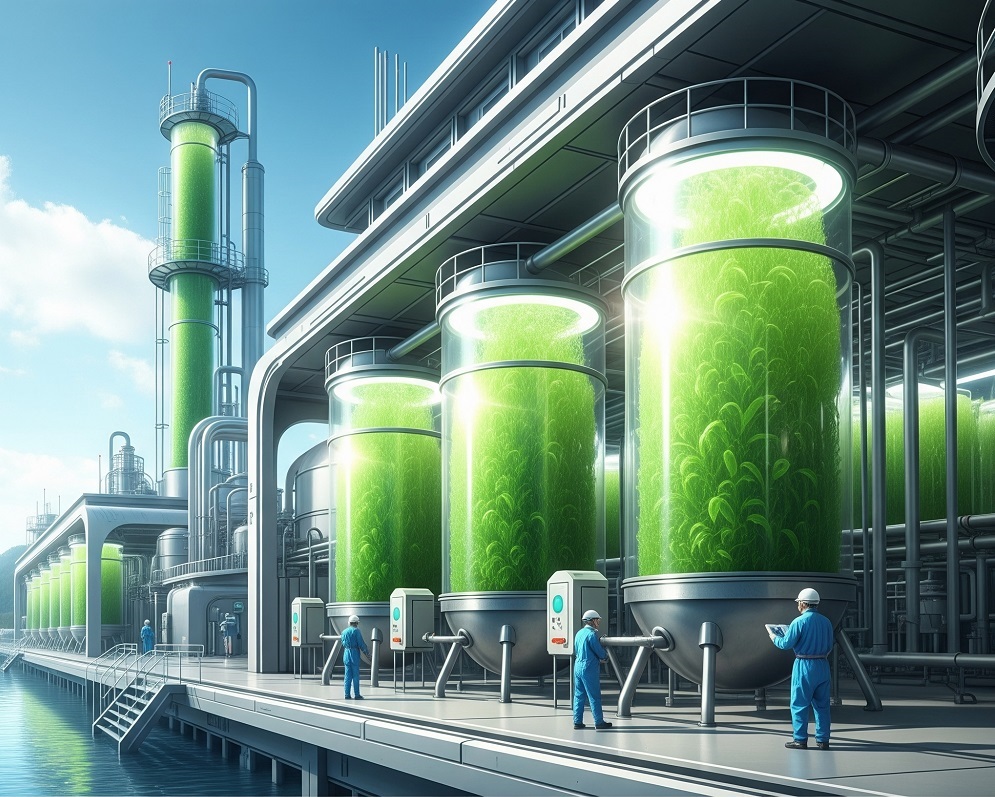Right Now
Europe Algae Biofuel Market Report 2023-2033: Data-Driven Insights on Trends and Opportunities
The Europe algae biofuel market is gaining traction as the region intensifies its efforts toward climate neutrality and energy diversification. Algae biofuels, derived from high-lipid microalgae and macroalgae, present a promising alternative to fossil fuels by offering high energy yields and lower carbon footprints. With robust policy backing from the European Union and growing investments in renewable energy R&D, algae-based fuels are emerging as a strategic component of Europe’s clean energy portfolio.
According to BISResearch, the Europe algae biofuel market is projected to reach $1,977.1 million by 2033 from $1,015.4 million in 2023, growing at a CAGR of 6.89% during the forecast period 2023-2033.
What is an algae biofuel?
Algae biofuels are renewable energy sources produced from algae, which generate energy-rich oils that can be refined into biodiesel or bioethanol. Unlike conventional biofuels from crops like corn or sugarcane, algae can grow in freshwater, saltwater, or wastewater and deliver higher yields per acre. They also absorb CO₂, making them a promising solution for reducing emissions and supporting sustainable energy goals.
What are the key drivers of the algae biofuel market in Europe?
EU Climate Policies and Green Deal Initiatives: Ambitious emission reduction goals and renewable energy directives are promoting investment in alternative fuels, including algae-based biofuels.
Energy Security and Decarbonization Needs: The ongoing energy transition and geopolitical factors are prompting countries to reduce dependence on imported fossil fuels and explore homegrown renewable sources.
Sustainability and Waste Utilization: Algae can grow in wastewater or non-arable land, making it a sustainable option that avoids competition with food crops while also aiding in water treatment.
Which Countries Are Driving Algae Biofuel Development in Europe?
Leading nations like Germany, the Netherlands, France, and the UK are spearheading algae biofuel efforts in Europe. Germany and the Netherlands excel in R&D and pilot-scale biorefineries, while France supports cultivation through public-private partnerships. The UK focuses on aviation and marine fuel testing programs. Coastal countries such as Spain and Norway are also exploring marine algae farming initiatives, enhancing regional innovation and scaling the algae biofuel value chain.
Request A Detailed Sample on the Europe Algae Biofuel Market!
What challenges does the Europe algae biofuel market face?
High Production and Processing Costs: Commercial-scale algae cultivation and biofuel conversion remain capital-intensive and technologically demanding.
Limited Commercial Infrastructure: Scaling up production requires advanced biorefineries and supportive logistics, which are still underdeveloped.
Regulatory Uncertainty: Harmonization of biofuel standards and certification across EU member states is still evolving.
Key Players in the Europe Algae Biofuel Market
Neste
AlgaEnergy S.A.
BDI-BioEnergy International GmbH
Future Outlook
The Europe algae biofuel market is expected to grow steadily through 2032, driven by policy support, sustainability demands, and advancements in biotechnology. As production costs decline and infrastructure improves, algae biofuels have the potential to become a critical element of Europe’s long-term energy transition and circular economy.
Conclusion
The Europe algae biofuel market is set for steady growth, driven by strong policy support, rising sustainability goals, and advances in biotechnology. With expanding applications across transportation and industry, algae biofuels offer a viable path to decarbonization. Continued investment in R&D and infrastructure will be crucial to scaling production and positioning algae as a core component of Europe’s green energy future.
More Posts

Report This Post
Please complete the following requested information to flag this post and report abuse, or offensive content. Your report will be reviewed within 24 hours. We will take appropriate action as described in Findit terms of use.





















